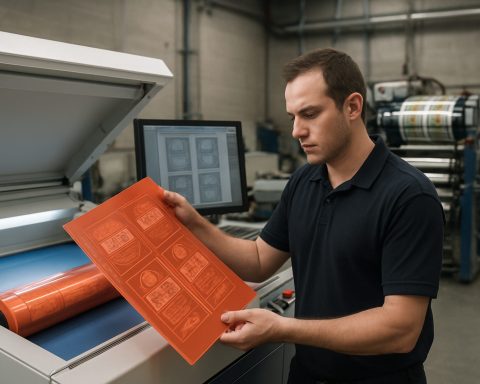- Paul Chan Mo-po emphasized the transformative power of shared wisdom at the Family Education and Heritage Forum 2025.
- Families should balance wealth with foresight and adaptability to ensure sustained success.
- Integration of geopolitics, AI, and ecological advancements is crucial for modern family enterprises.
- Inclusivity and social responsibility are key to leveraging technologies and uplifting communities.
- Wisdom, embodying empathy and resilience, is a legacy that transcends cultural bounds and guides future generations.
- Investing in intangible legacies of insight and understanding is vital for a prosperous and purposeful family narrative.
On a day that rippled with the promise of shared wisdom and evolutionary ideas, Hong Kong’s Financial Secretary, Paul Chan Mo-po, turned a spotlight onto a rarely discussed yet deeply transformative aspect of family legacies. Speaking at the Family Education and Heritage Forum 2025, Chan unfurled a vision that transcended the traditional focus on wealth, urging families to focus equally on the enduring value of shared wisdom.
Chan skillfully painted a picture of the modern family enterprise, highlighting its need to dance nimbly through the rhythms of change. While wealth undoubtedly underpins these dynasties, there’s another, subtler framework that supports sustained success—an ethos that integrates foresight and adaptability. As future generations chase their ambitions, they must also wield the acumen to anticipate and manage the lurking challenges.
The discourse meandered through the intricate tapestry of geopolitics, artificial intelligence, and the green revolution—threads Chan identified as the fabric of the coming decade. Families, he urged, must weave these threads into their operational narrative, investing not only in business longevity but in the vibrancy of technological advancements and ecological transformation.
In a world that weighs heavily on the scales of success, Chan’s insights reveal a counterbalance: the call for inclusivity and social responsibility. Many of today’s trailblazing technologies and enterprises thrive not just on groundbreaking ideas, but on their power to uplift the broader community. This belief in shared growth forms the beating heart of next-generation success.
Yet, perhaps the most poignant takeaway from Chan’s address was his reflection on wisdom as a legacy. Beyond the tangible treasures passed down through families, wisdom equips future generations with empathy, resilience, and a perspective that transcends cultural confines. These values arm them with the courage to confront adversity and the moral compass to uphold correct principles.
Ultimately, fostering these qualities should be the lodestone on the journey of education, not just for nurturing a capable lineage but for molding global citizens who navigate the world with both heart and mind.
Chan’s narrative invites us to reimagine what we leave behind, urging us all to invest as much in the intangible legacies of insight and understanding as we do in material wealth. Only then can we ensure that the family saga unfolds with both prosperity and purpose, crafting a legacy that glows as brightly in wisdom as it does in wealth.
The Modern Family Legacy: Beyond Wealth and Into Wisdom
Introduction
In a compelling address at the Family Education and Heritage Forum 2025, Hong Kong’s Financial Secretary, Paul Chan Mo-po, urged a reevaluation of family legacies. While financial wealth has traditionally been the cornerstone of familial success, Chan emphasized the lasting significance of wisdom and shared insights. This approach not only nurtures capable lineages but molds informed global citizens, prepared to face societal and environmental challenges.
Incorporating Foresight and Adaptability
The future landscape is marked by critical themes like geopolitics, artificial intelligence, and the green revolution. Families and enterprises must incorporate these elements to ensure longevity and adaptability. These components are vital as they navigate a rapidly changing world, providing the necessary tools to manage potential challenges effectively.
Real-World Use Cases
1. Tech Startups: Integrating AI solutions in family businesses can lead to enhanced decision-making processes, creating efficiencies and innovative opportunities.
2. Sustainable Practices: A focus on ecological transformation can position family enterprises at the forefront of responsible business practices, which is increasingly attractive to consumers.
The Power of Inclusivity and Social Responsibility
Many modern enterprises leverage not only their groundbreaking ideas but also their ability to uplift broader communities. This inclusive growth strategy is essential for fostering a harmonious balance between business success and societal advancement.
Practical Insights & Predictions
– AI and Machine Learning: With AI becoming increasingly integral to business operations, families could benefit from investing in AI education and technologies to stay competitive.
– Green Technology Investments: This sector is poised for exponential growth. Engaging in sustainable businesses can generate long-term returns while meeting ethical standards.
How-To: Building a Legacy of Wisdom
1. Encourage Continuous Learning: Promote lifelong education among family members to adapt to new challenges.
2. Foster Open Communication: Create forums within the family to discuss changes in industry trends and global policies.
3. Prioritize Ethical Leadership: Instill values of integrity and responsibility in business operations.
Controversies and Limitations
It’s crucial to recognize challenges such as:
– Technological Inequality: Access to cutting-edge technology might not be universally available, creating disparities.
– Sustainability vs. Profit: Balancing green initiatives with profitability can be complex without clear regulations and incentives.
Actionable Recommendations
– Investment in Education: Consider workshops on emerging technologies and global issues.
– Adopt Green Business Practices: Implement sustainable practices in daily operations, which can also lead to cost savings.
Implementing these steps can ensure that family legacies are rich in wisdom and societal contribution as they are in economic success.
Pros & Cons Overview
Pros
– Enhanced family reputation through responsible business practices.
– Resilient business operations with adaptability to change.
Cons
– Initial costs for educational and technological investments.
– Possible resistance to change from established practices.
Conclusion
Chan’s message underscores the importance of wisdom as a cornerstone of family legacy. Emphasizing shared insights alongside wealth ensures a narrative of prosperity infused with purpose. By investing in intangible assets like education, ecological stewardship, and ethical responsibilities, families craft a heritage that is equally prosperous and principled.
For further exploration, visit the relevant pages on World Economic Forum.







